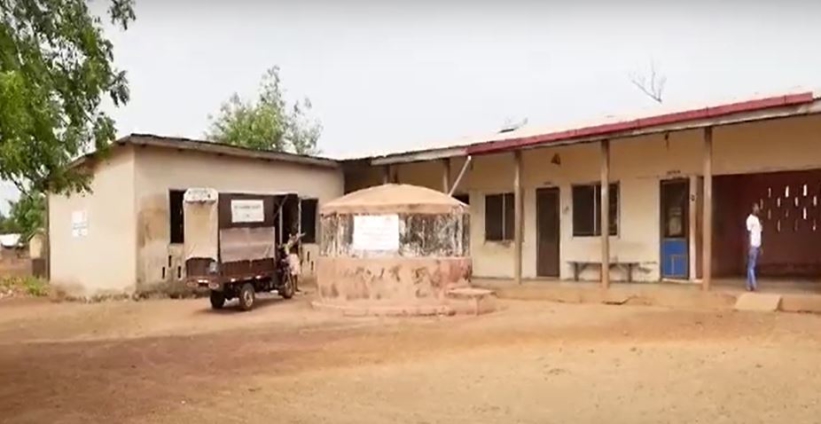A research has revealed that health facilities in the northern part of the country are not ready to manage suspected or real cases of Covid-19.
The research found out that whilst health staff had low confidence in themselves and their facilities’ capacities to handle cases of Covid-19, basic protectives such as disinfectants, thermometer guns, medical masks, gloves and soap were also not available at all the public health facilities, especially those that were the first points of calls for communities.
It also found that whilst some training was held for some health staff across the regions including Police with focus on handwashing, referral system, and management of personal protective equipment, officers of the National Disaster Management Organisation had been left out of the training.
The research, which was conducted in May, by NORSAAC, an NGO, assessed amongst others the infrastructural and logistical, as well as professional readiness of health staff in handling suspected or real cases of COVID-19 at the community, district and regional health facilities.
A total of 108 front line health staff from 90 community and district level health facilities in 18 districts in the Northern, North East, Savannah, Upper East, and Upper West Regions, and 59 Regional and District level COVID-19 response teams in those areas were interviewed as part of the research.
NORSAAC disseminated the findings of the research in a virtual event for journalists and other stakeholders from its base at Shishegu in the Sagnarigu Municipality of the Northern Region.
By May 31, the country’s COVID-19 case count stood at 7,881 with 2,841 recoveries and 36 deaths, and all the regions in the northern part of the country have recorded cases of the disease.
The research also assessed the reliability of water supply for enhanced handwashing protocols at the facilities and found that 78 percent of the facilities had reliable water supply whilst 22% did not have reliable water supply adding that the water supply sources included 52% being boreholes, 18% being poly tanks, 26% being standpipes, and five percent being other sources.
It also found that antenatal (ANC) and post-natal (PNC) attendance at health facilities had reduced due to fear of contracting COVID-19 at the facilities.
It also found that adolescents’ access to reproductive health services at health facilities had also reduced because they did not frequent the facilities for fear of contracting the disease.
In light of the findings, the research had recommended that the Ghana Health Service and district assemblies urgently train all medical and non-medical staff on COVID-19 issues to boost their confidence in managing such cases.
“The government must demonstrate transparency around the utilization of the COVID-19 fund and the equipment that had been procured and distributed to the regions”, the study added.
It said, “As a matter of urgency, the Regional COVID-19 emergency committees must publish the list of health facilities and the COVID-19 equipment supplied to facilities at the district and community levels.”
It said, “The districts must ensure regular water supply to CHPS Compounds and health centers, especially those relying on dams and rivers for handwashing.”
NORSAAC is an NGO that connects the realities of women, children, and youth to national discourse and dialogues. It has experience in responding to emerging issues with a focus on the needs of its constituents.
Latest Stories
-
Bond market: Trading activity declines by 23.15% to GH¢1.18bn
7 minutes -
COPEC calls out government for neglecting key energy assets
8 minutes -
Cedi slides on renewed demand, geopolitical risks; one dollar equals GH¢12.20 at forex bureaux
20 minutes -
Detained BECE candidates: Kwabre East MP reports headmaster to police
23 minutes -
Ghana’s 2025/26 football season to begin on July 1
1 hour -
Ghana’s neutrality in Iran-Israel conflict commendable – GLOSARGG
1 hour -
Abuakwa South MP engages religious bodies to promote special needs education
1 hour -
Labour Ministry signs MoU with Platinum Impact Ltd. to boost work abroad initiative
1 hour -
Bishop Dr. Emmanuel Victor Adjei Wiredu
1 hour -
Health Top-Up Services transforms public health, safety in Ghana
1 hour -
Cedi appreciation: PassionAir announces 10% fare reduction across all destinations
1 hour -
Togo suspends French state-owned broadcasters RFI and France 24 for alleged biased reporting
2 hours -
Edmund Adwetewa Tumtuo
2 hours -
Why Ntim’s Resignation is Preferable to Indefinite Absence in a Struggling NPP
2 hours -
Ghana ranked 10th in Africa with highest fuel prices
2 hours

